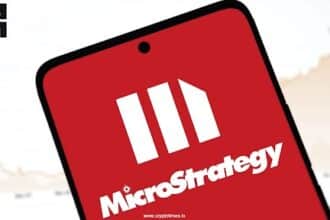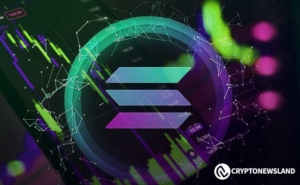BloXrout will reject transactions with OFAC-blacklisted addresses
Quick Take Ethereum relay provider bloXroute said it will start rejecting transactions containing addresses on the U.S. sanctions list.
BloXrout, a blockchain infrastructure firm that provides DeFi tools, said that its relays will start rejecting transactions containing addresses on a U.S. sanctions list.
"Effective immediately, all bloXroute relays will reject block bids if they contain OFAC transactions (Tx which interact with addresses appearing on the OFAC SDN list)," bloXroute wrote Monday on X. The change is expected to have "no effect" on the network, "except reducing our own win-rate."
Transaction censorship by bloXroute should not affect Ethereum ETH -0.46% 's "unstoppable, permissionless and anti-fragile" nature, the company said. "Because it's decentralized and globally distributed, and not easily affected by any single entity, even if it has the best networking tech."
The announcement has been met with some criticism by commentators on X. "It's either 'committed to supporting ETH' or 'maintaining compliance.' Can't have both," wrote a user named Egor Egorov in a reply . "Are you self-censoring or did the state come knocking?" asked user Marius Kjærstad.
Sanctioned addresses
Other major crypto players have demonstrated compliance with the U.S. Treasury's Office of Foreign Control requirements to not facilitate transactions for anyone on the sanctions list.
Tether, the centralized issuer of the largest stablecoin USDT, recently announced the freezing of all crypto addresses on the OFAC list. Weeks later, the company said it had "onboarded the United States Secret Service into our platform and is in the process of doing the same" for the FBI.
There have been attempts at transaction censorship on decentralized Bitcoin, too. In 2021, U.S. mining firm Marathon said it would not include transactions with OFAC-blacklisted addresses in blocks, but promptly retracted the move. In November, a researcher noticed that F2Pool mining pool rejected several of such transactions.
Lead developer of the blockchain explorer Blockchair Nikita Zhavoronkov wrote that he sees bloXroute's announcement as another sign of a bigger trend.
"While bloXroute is neither a miner nor a validator, this is the first case of someone rejecting whole blocks containing sanctioned addresses. Previous cases were all about not including transactions into block templates," he wrote on X, adding that if enough validators follow this trend, it could lead to a kind of "51% attack" on Bitcoin and Ethereum.
"With ETFs and BlackRock coming, Bitcoin and other major cryptos are adhering more and more to compliance and KYC, so we can expect more pools following 'rules,'" Zhavoronkov said.
Disclaimer: The content of this article solely reflects the author's opinion and does not represent the platform in any capacity. This article is not intended to serve as a reference for making investment decisions.
You may also like
US equities slide as trade war escalates, Powell signals no rate cut
Tariff and interest rate concerns overshadowed a positive March jobs report
Sei Investments increases 39% stake in MicroStrategy

Fidelity Spot Solana ETF Gains Traction As SEC Acknowledges Filing

Paul Atkins Moves Closer to SEC Chair Role After Senate Committee Approval

